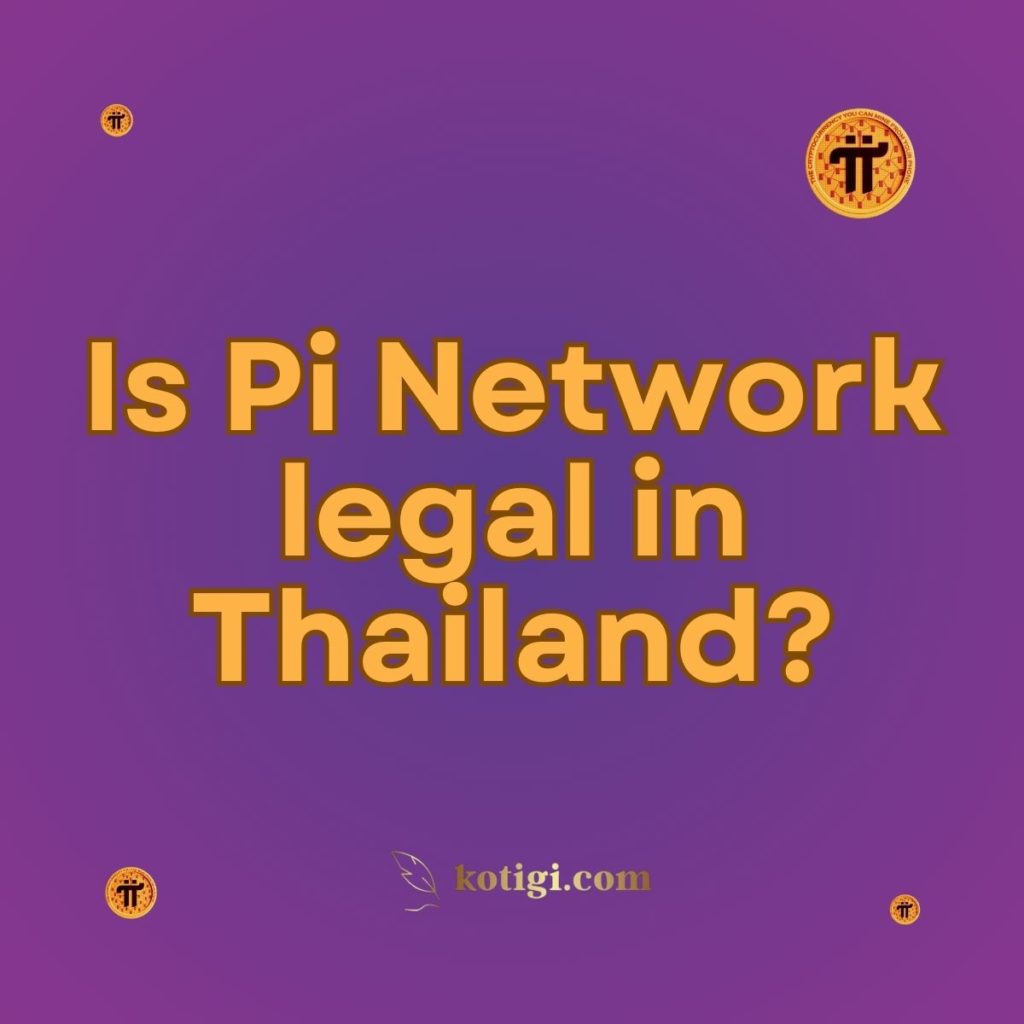
Is Pi Network legal in Thailand?
The legality of Pi Network in Thailand is not explicitly defined, as the country has not issued specific regulations regarding Pi. However, Thailand has a relatively clear regulatory framework for cryptocurrencies, which can give some insights into how Pi Network might be viewed.
Cryptocurrency Regulations in Thailand
Thailand is one of the more progressive countries in Southeast Asia when it comes to regulating cryptocurrencies. The Securities and Exchange Commission (SEC) of Thailand oversees digital assets and cryptocurrencies, ensuring that they comply with the country’s legal framework. Cryptocurrencies like Bitcoin, Ethereum, and other digital assets can be legally traded, provided that the exchanges handling them are registered and compliant with local regulations.
In 2021, Thailand’s SEC implemented new guidelines for cryptocurrency exchanges and service providers. This includes licensing requirements, Know Your Customer (KYC) procedures, and strict anti-money laundering (AML) regulations. While cryptocurrency trading is allowed, certain coins and tokens have been banned for specific purposes, such as meme tokens and fan tokens.
Where Pi Network Stands in Thailand
Pi Network is not yet a fully launched cryptocurrency, as it is still in its testing phase. Users of Pi Network are mining Pi coins on their mobile phones, but these coins currently have no monetary value and are not traded on public exchanges. As Pi Network is still in development, it does not yet fall under Thailand’s specific cryptocurrency trading regulations, which apply to tradable digital assets.
There have been no official statements from the Thai government or the SEC regarding Pi Network. Therefore, it can be assumed that Thai users can currently participate in the Pi Network without facing legal issues, given that Pi coins are not yet considered tradable digital assets.
Potential Future Legal Considerations
Once Pi Network launches its mainnet and its coins become tradable, the situation could change. Thailand’s SEC may require Pi coins to comply with the same regulations as other cryptocurrencies, which means Pi might need to undergo scrutiny, and its trading could be subject to regulations like licensing, AML, and KYC requirements.
Thai authorities have shown a proactive stance toward regulating digital currencies to protect consumers and prevent illegal activities. Once Pi becomes tradeable, it will likely be regulated in the same manner as other cryptocurrencies in the country.
No Official Ban on Pi Network
As of now, there is no official ban on Pi Network in Thailand. The platform operates in a legal gray area, much like other cryptocurrencies in their early stages. Thai users can continue mining Pi coins on the platform without facing regulatory action at this stage.
Conclusion
Pi Network is currently legal in Thailand, but its legal status may change once it launches its mainnet and becomes a tradable cryptocurrency. While Thailand has a structured regulatory framework for digital assets, Pi Network does not yet fall under these regulations since its coins hold no monetary value. Users in Thailand should stay informed about potential future changes in cryptocurrency regulations, as the Thai SEC may impose specific rules on Pi once it becomes fully operational and tradable.




